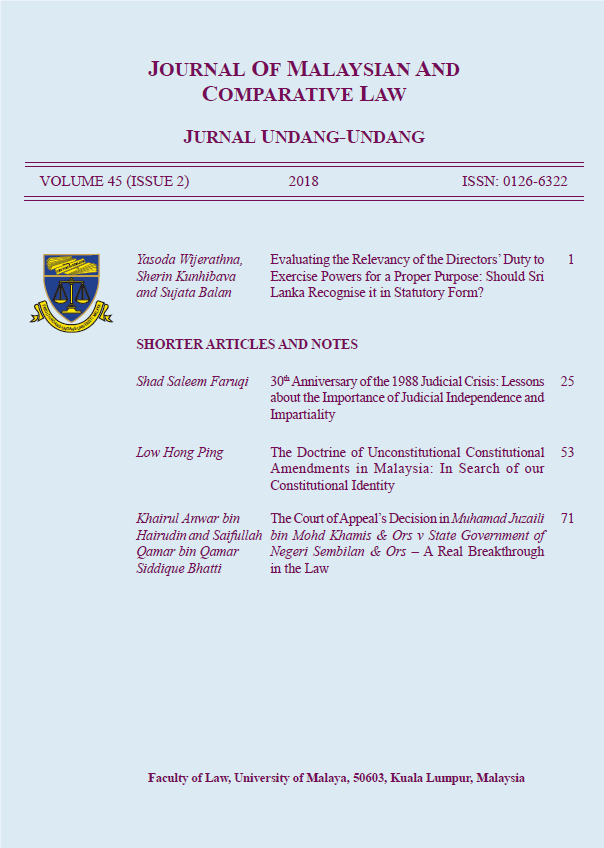Evaluating the Relevancy of the Directors’ Duty to Exercise Powers for a Proper Purpose
Should Sri Lanka Recognise it in Statutory Form?
Keywords:
Directors Duties, Proper Purpose Rul, good faith, shareholdersAbstract
A comparison of the directors’ duties in the Companies Act No 07 of 2007 of Sri Lanka (SLCA 2007) with the Companies Acts of the selected comparative jurisdictions, the United Kingdom and New Zealand demonstrates that Sri Lankan statute has recognised the key fiduciary duties of directors in statutory form, similar to these comparative jurisdictions, except for the proper purpose rule that dictates directors must exercise their powers for a proper purpose. In this context, an inevitable question arises, whether the proper purpose rule needs to be statutorily recognised in Sri Lanka as part of a directors’ duty, one that is found in similar corporate legislations in other jurisdictions. It is this concern that the article addresses. It critically analyses the scholarly and judicial debate surrounding the duty of directors to exercise powers for a proper purpose. Firstly, this article points out that in many cases, the standard of good faith is applied to ascertain the propriety of purpose. It is argued that in such cases, the duty of proper purpose is adding nothing more to the duty of good faith. Secondly, the article examines the alternative judicial approach of considering the two as separate duties and analyses its weaknesses focusing on the tests employed in such context. Further, the article considers the opinion that strict scrutiny of directors’ decision-making through the proper purpose rule reflects the necessity to protect shareholders from abuse of power that existed prior to the introduction of statutory remedies for shareholders’ protection. It is demonstrated that the proper purpose rule appears to be redundant in the presence of the cumulative effect of the duty of good faith to act in the best interest of the company, duty to follow legislation and the corporate constitutions and also the discretionary remedies of the court to protect shareholders. This article concludes that recognising the proper purpose rule in statutory form in Sri Lanka is unnecessary and suggests that the suitable standard to apply for keeping the discretionary powers of corporate directors in check is the standard of good faith.
Downloads









